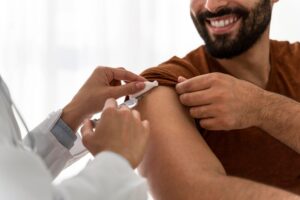Vaccinations play a crucial role in public health by preventing various infectious diseases, including sexually transmitted infections (STIs). Understanding the intersection of auto vaccinations and STIs is essential for promoting safe sexual practices and enhancing community health. This article explores the significance of vaccinations in preventing STIs, the types of vaccines available, and the importance of regular testing.

The Importance of Vaccinations in STI Prevention
Vaccinations are a proactive measure to prevent certain STIs, which can lead to severe health complications if left untreated. Vaccines work by stimulating the immune system to recognize and combat specific pathogens, reducing the risk of infection.
Key Vaccines for STI Prevention
- Human Papillomavirus (HPV) Vaccine: Protects against the most common types of HPV that cause cervical cancer and genital warts. The vaccine is recommended for preteens and young adults.
- Hepatitis B Vaccine: Provides immunity against hepatitis B, a viral infection that can lead to chronic liver disease. It is especially important for sexually active individuals.
- Hepatitis A Vaccine: While primarily a foodborne illness, hepatitis A can also be transmitted through sexual contact. Vaccination is recommended for individuals at higher risk.
Understanding Sexually Transmitted Infections (STIs)
STIs are infections commonly spread through sexual contact. Many STIs may not present symptoms initially, making regular testing essential for early detection and treatment.
Common Types of STIs
- Chlamydia: Often asymptomatic but can cause serious reproductive health issues if untreated.
- Gonorrhea: Can lead to infertility and other complications if not treated promptly.
- Syphilis: A bacterial infection that progresses through stages if left untreated.
- HIV/AIDS: A viral infection that attacks the immune system and can lead to life-threatening conditions.
Symptoms of STIs
Symptoms may vary depending on the type of STI but can include:
- Unusual discharge from the genital area
- Pain during urination or sexual intercourse
- Sores or warts around the genitals or anus
- Rash or itching in the genital area
The Role of Regular Testing
Regular STI testing is vital for sexually active individuals, especially those with multiple partners. Many STIs can be asymptomatic, making it easy to unknowingly transmit infections to others. Testing helps ensure early detection and treatment, reducing long-term health risks.
Preventive Measures Beyond Vaccination
In addition to vaccination, individuals can take several steps to reduce their risk of STIs:
- Use condoms consistently and correctly during sexual activity.
- Limit the number of sexual partners.
- Engage in mutual monogamy with tested partners.
- Communicate openly with partners about sexual health and history.
FAQs
1. What vaccines are available to prevent STIs?
The HPV vaccine, hepatitis B vaccine, and hepatitis A vaccine are key immunizations that help prevent certain sexually transmitted infections.
2. How often should I get tested for STIs?
Sexually active individuals should consider getting tested at least once a year or more frequently if they have multiple partners or engage in high-risk behaviors.
3. What are common symptoms of sexually transmitted infections?
Symptoms can include unusual discharge, pain during urination or sex, sores around the genitals, itching, or rashes in the genital area.
4. Can vaccinations completely prevent STIs?
While vaccines significantly reduce the risk of certain STIs, they do not provide complete protection; safe sex practices are still essential.
5. Why is it important to communicate with partners about STIs?
Open communication helps ensure both partners are aware of their sexual health status, facilitating testing and treatment to prevent transmission of infections.
Conclusion
At our clinic, we understand the importance of preventive care. Let us guide you through the available vaccinations and STI services to ensure you maintain optimal sexual health. Visit us at https://tscmlk.com/ or call us at (469) 981-0529 to schedule your appointment today!
